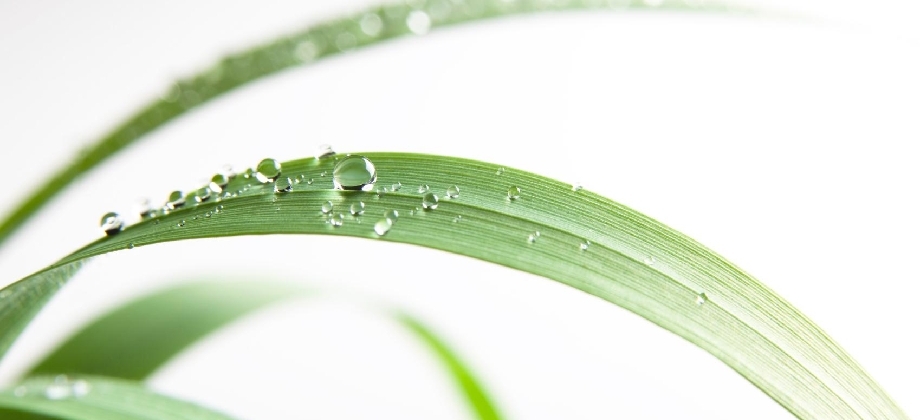
Allergies are abnormal reactions of the immune system to the harmless substances in the environment, such as pollen, dust mites, animal dander and foods. Patients with allergies triggered by different allergens have often displayed these symptoms: runny nose, sneezing, rash, itchiness, watery eyes, congestion, abdominal cramps, or even asthma. There are three widely used ways to prevent and treat allergies:
1. Avoidance: to stay away from a substance that causes an allergic reaction.
2. Immunotherapy: also called desensitization and allergy shots. Mixed allergy extracts from allergens are injected under the skin, usually into the fatty tissue, and then gradually a loss or reduction of sensitivity to the allergens is accomplished.
3. Medication: there are two main allergy medication types.
(1). Antihistamines block the action of histamine released by mast cells which are involved in allergies, and this relieves or prevents the symptoms of an allergy reaction. There are two different types of antihistamines: the older group and the newer group.
(2). Decongestants reduce nasal congestion by constricting blood vessels and this is used to treat nasal congestion and other symptoms associated with allergies.
2. Immunotherapy: also called desensitization and allergy shots. Mixed allergy extracts from allergens are injected under the skin, usually into the fatty tissue, and then gradually a loss or reduction of sensitivity to the allergens is accomplished.
3. Medication: there are two main allergy medication types.
(1). Antihistamines block the action of histamine released by mast cells which are involved in allergies, and this relieves or prevents the symptoms of an allergy reaction. There are two different types of antihistamines: the older group and the newer group.
(2). Decongestants reduce nasal congestion by constricting blood vessels and this is used to treat nasal congestion and other symptoms associated with allergies.
When severe symptoms occur, such as coughing, wheezing and shortness of breath, bronchodilators and steroid medications are usually used to relax the airway muscles and decrease these allergy symptoms.
These above methods are effective in the prevention and treatment of allergies, but there are certain disadvantages and side effects.
1. Avoidance: allergens are in the environment and sometimes it is difficult to really avoid or remove them;
2. Immunotherapy: there are two types of potential abnormal reactions to immunotherapy: a local or a systemic one. The local reaction consists of redness and swelling at the injection site; a systemic reaction causes nasal congestion, sneezing, hives, swelling, wheezing, and low blood pressure that is serious and sometimes life threatening.
3. Medication:
(1). many older antihistamines have a sedating effect that causes drowsiness and most of the newer, non-sedating antihistamines may cause dry mouth. In addition, antihistamines may cause side effects that could worsen conditions such as glaucoma, enlarged prostate gland, retention of urine, or obstruction of the intestines.
(2). Decongestants often have a "rebound" response after being suspended. More medication only makes the congestion worse.
Other medications, such as Bronchodilators may cause agitation and nervousness; Spray steroid medications may cause nosebleed or sore throat; long-term oral use (more than one week) has potential systemic side effects.
2. Immunotherapy: there are two types of potential abnormal reactions to immunotherapy: a local or a systemic one. The local reaction consists of redness and swelling at the injection site; a systemic reaction causes nasal congestion, sneezing, hives, swelling, wheezing, and low blood pressure that is serious and sometimes life threatening.
3. Medication:
(1). many older antihistamines have a sedating effect that causes drowsiness and most of the newer, non-sedating antihistamines may cause dry mouth. In addition, antihistamines may cause side effects that could worsen conditions such as glaucoma, enlarged prostate gland, retention of urine, or obstruction of the intestines.
(2). Decongestants often have a "rebound" response after being suspended. More medication only makes the congestion worse.
Other medications, such as Bronchodilators may cause agitation and nervousness; Spray steroid medications may cause nosebleed or sore throat; long-term oral use (more than one week) has potential systemic side effects.
Although immunotherapy and allopathic medicine (medication) are very effective at treating the allergic response, side effects cause many people to seek alternative approaches to managing their allergies. Acupuncture is one of the proven natural treatments, which can provide a new kind of relief for allergies and does not have unwanted side-effects.
According to my clinic experience, acupuncture can relieve most of these symptoms after a couple of treatments are administered during a single week. In addition, herbal medicine can help acupuncture extend this relief without the side effects. Herbs alone may also adjust the immune system and relieve symptoms such as congestion, headache, itchiness, or eye irritation. Powdered herbs can be individualized based on different conditions and the constitution of each person. After regular treatment with acupuncture and herbal medicine, most people should have long-term freedom from allergies, or experience reduced frequency and severity of future allergic responses. The patient’s quality of life will be improved significantly.
